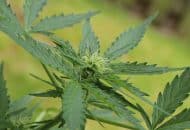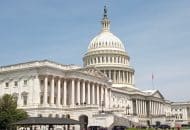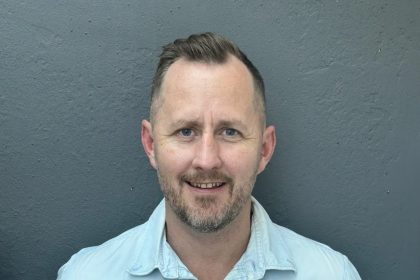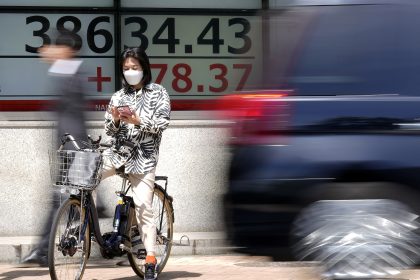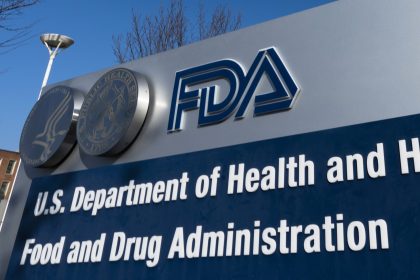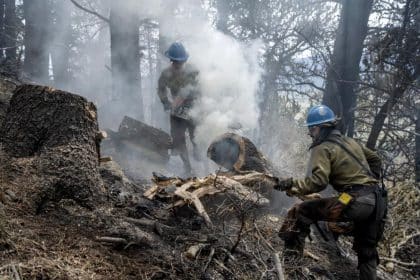Beyond the Breaking Point: Healing America’s Trust Divide
COMMENTARY
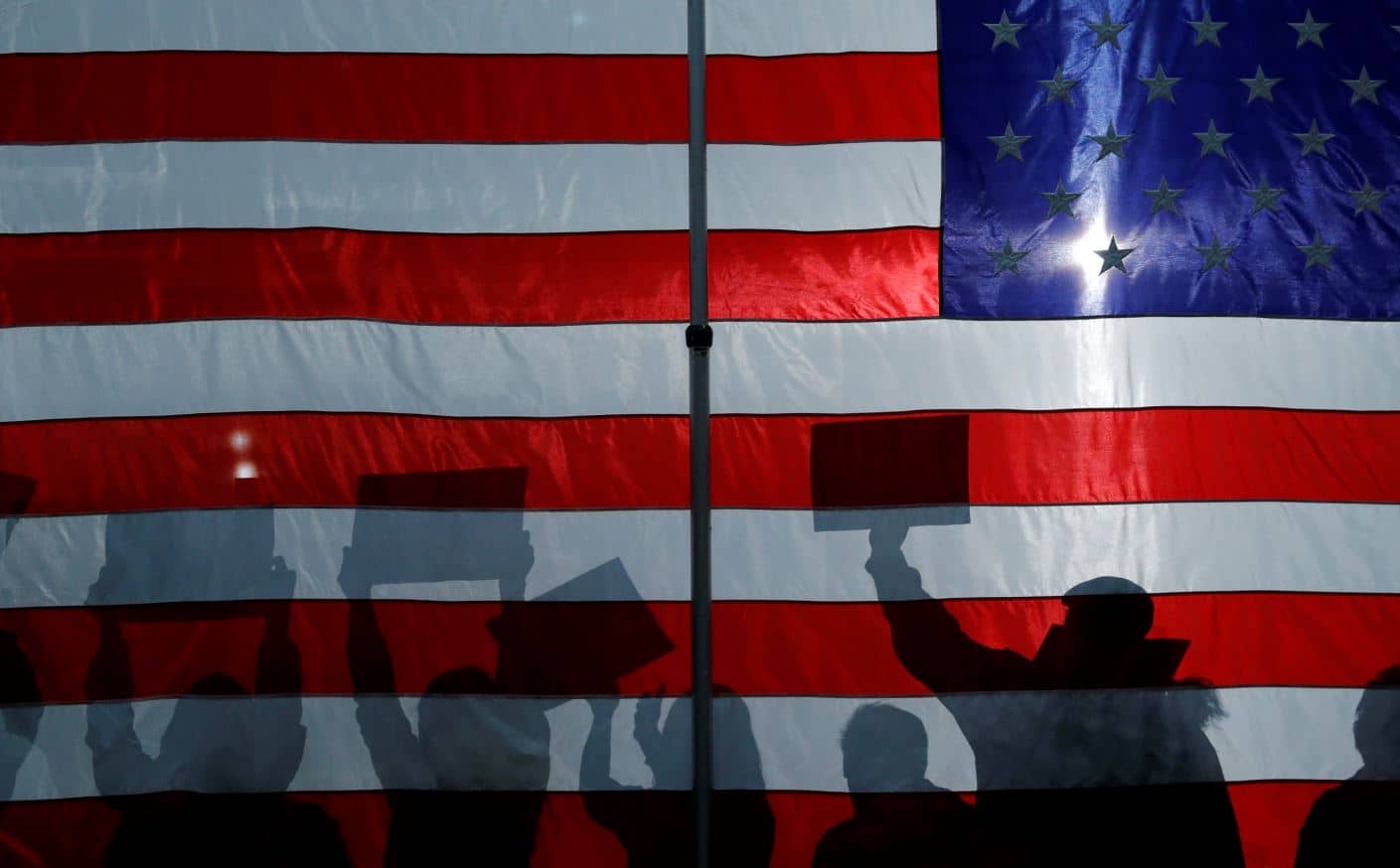
America’s trust in institutions is declining. This has profound implications for our politics, economy and how we relate to our fellow Americans. As we take each step deeper into an election year, we see, even more glaringly, the systemic distrust woven into the web of society.
Look at our court system, long prized for its impartiality. Today, conservative supporters of former President Donald Trump don’t believe he can get a fair trial in the myriad criminal and civil cases being brought against him. Meanwhile, liberals hold their breath every time the Supreme Court weighs in on a case, concerned that decades of social progress will be rolled back.
Issues that should be characterized as bipartisan are suddenly stoking fires they were meant to put out. For example, the recently announced Greenhouse Gas Reduction Fund provides loans to the private sector to develop domestic clean energy capacity, something everyone should get behind, and yet it is being politicized and turned into the latest political football on Capitol Hill.
Turning an issue like this into a political tug-of-war is a disservice to Americans and does nothing to assuage their growing distrust.
According to a 2023 Gallup poll, over half of Americans only trust two institutions: small businesses (65%) and the military (60%). For the remaining 14 institutions polled, the American people are consistently losing confidence, with abysmal confidence rates in the presidency, the Supreme Court and Congress.
According to Pew, public trust in government is the lowest it’s been since the organization started tracking this metric in the 1950s.
Trust underpins the way we interact with organizations and institutions, with society and with each other. Societies that lack trust see an increase in polarization, fragmentation and disillusion. Research shows that trust impacts the strength and quality of democracy; without it, the social web between individuals and elected officials erodes, weakening communities and slowing progress.
From Community to Silos … and Back Again?
For thousands of years, most people lived in small groups where trust was woven by familial and tribal ties that could easily connect any one member of the community to another. During the industrial era, society transformed to connect people on a much larger scale, and rather than trust being built only on personal relationships, it was based on shared connections through large institutions like schools, companies and nation-states.
At the turn of the 21st century, public trust shifted once again with the dawn of the wireless internet, creating an online culture that made it much easier to find people from your “tribe” regardless of where they lived geographically. Whether it was joining a Facebook group with shared political views, a Reddit channel for a favorite TV show, or relying on the crowdsourcing of strangers to pick which restaurant to eat at, people once again reconfigured in whom they put their trust.
Unfortunately, this extreme of peer-to-peer trust created more silos, making societal compromise and consensus-building far more challenging. The federal government is struggling with policymaking in this new context, where posts on X drive more debate in Congress than issues that will impact this country long-term.
Finding a Way Back to Interdependence
We need a new framework for trust, one that builds a bridge across tribes, cultures and systems; from peer-to-peer networks to top-down structures.
We need to build interdependent trust. Here’s how:
We need to broaden our definition of diversity and bring the right voices to the table. Not only do we need to incorporate traditional diversities such as race, gender identity and religion, but also lived experience, age, socioeconomic background, political beliefs and the introversion-extroversion continuum. For example, engaging formerly incarcerated people and utilizing political bipartisanship are integral to Dream.Org’s criminal justice campaigns. If key groups of Americans aren’t offered a seat at the table, they won’t invest in making the necessary, lasting change that America’s communities deserve.
We need more people to say yes. Activists often decline opportunities to engage with those who represent a different viewpoint. Boycotting meetings with government officials or at focused trade conferences like Davos might get attention — but they don’t move the needle.
We need to normalize constructive conflict as part of the creative process, rather than using it as an excuse to retreat.
For example, the World Economic Forum’s Global Shapers Community brought together young innovators in city-based hubs to strengthen their communities. The innovators were based in the same place but came from dramatically different backgrounds, industries and political leanings. To overcome roadblocks, they leveraged the concept of forming, storming, norming and performing.
We need to co-create with the individuals and communities these institutions are trying to serve by actively bringing different perspectives into the entire design, development and implementation process. For example, the historic Close Rikers campaign successfully persuaded New York City to commit to closing its notorious jail complex by constantly engaging new community members in shaping and executing the campaign.
Rebuilding trust requires time, resources and an ongoing commitment to change. But amid a contested election cycle, and the rapidly eroding belief in the effectiveness of our institutions, we need to continue to take action together. Our democracy depends on it.
Janos Marton is the chief advocacy officer at Dream.Org. Marton ran for Manhattan district attorney in 2020 on a platform of responsible decarceration and continues to champion policies that prioritize people over prisons. He can be reached on LinkedIn.
Dr. Noa Gafni is the executive director of the Rutgers Institute for Corporate Social Innovation. She is also a Social Innovation Fellow at the University of Cambridge and a regular contributor to the Harvard Business Review, Forbes and the New York Times. She can be reached on LinkedIn.









